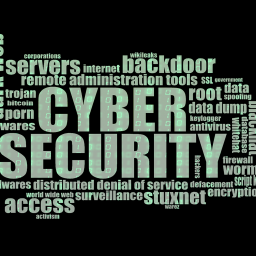
Securing the Metaverse: The Risks and Repercussions
If you haven’t heard of the Metaverse, you’ve most likely been living under a rock. Mark Zuckerberg, Facebook’s CEO, said in October 2021 that the company would rebrand as ‘Meta,’ portraying it as the future of social, business, leisure, and culture.
Zuckerberg characterised the Metaverse as the moment when ‘immersive digital worlds become the primary way that we live our lives and spend our time’. Business meetings, lunch with friends, and visits to the museum might all take place in a virtual world. It may sound absurd to assume this, but it is likely that people felt this way before most major technological advances – cell phones, the Internet, the Cloud – all of which were revolutionary.
The concept of a virtual reality universe has been around for a while (think The Matrix, Ready Player One, and Black Mirror), but Zuckerberg’s objective is to make it a living reality by 2031, with over a billion people signed up to the Metaverse platform.
Doesn’t that sound fantastic?
We thought FaceTime was impressive; picture participating in activities as avatars in a virtual environment with long-distance friends and family!
Increase in data harvesting:
While firms now collect personal data such as email addresses and phone numbers, functioning in the Metaverse will very certainly imply that much more data will be acquired – things you say or look at, details about your body language, and biometric information, for example.
New devices:
Working with VR necessitates the usage of devices such as headsets, cameras, sensors, and microphones, all of which can collect data. New laws and regulations covering the type of data held will almost certainly be required, yet this growth in technology may make some consumers uneasy.
More endpoints for hackers to exploit:
These new devices also increase the attack surface for hackers, and if they are not properly maintained and updated, they may be exposed to cyber attack.
How will we ensure a safe and secure Metaverse?
Of course, Zuckerberg will be in charge of many of the security mechanisms put in place in the Metaverse to decrease the risk of data breaches and cyber assaults as much as possible, but there are also things we can do as consumers to secure our personal information.
To better safeguard your home internet connection, those accessing the Metaverse from their home environment should set up a virtual private network (VPN). VPNs function by encrypting incoming and outgoing data, making it more difficult for hackers to intercept and compromise it. Another critical piece of cyber security for preventing external threats is a firewall. Consider it as a nightclub bouncer who sends out any bothersome characters and only allows excellent traffic into your home network.
If you know you’re a bad password keeper, you’ll want to get that under control before you start utilizing the Metaverse. Credentials are still one of the most commonly used methods by hackers to commit breaches, so don’t make it easy for them!
In the Metaverse, more significant methods of confirming a user, such as photo ID, may be required, as it would be far too easy for a hacker to impersonate someone and gain access to the information they desired.
Identifying a malicious hacker would be extremely difficult if everyone used a VPN to access the metaverse because your IP address is altered and your activity is encrypted, so something more to ensure each user is real will be critical to guard against things like identity theft.
Establishing a system of rules and protocols to protect users and encourage only secure and positive behavior is something Zuckerberg will undoubtedly need to achieve if he wants to make people feel confident about existing in the Metaverse.
So, who will be the Metaverse’s authoritative voice?
Because the Metaverse appears to be bridging the gap between the physical world and the online world, some form of administration must be required to monitor and manage user behavior. The aim is that we will operate in a manner similar to our realities – communicating with others, making purchases, attending events – so there must be a focus on ensuring that this occurs in the most secure setting possible.
Providing consumers adequate control over their privacy and security is an excellent place to start, as is making it simple for users to report inappropriate behavior and make suggestions for improved safety features. A case of sexual assault has already occurred within Meta’s Virtual social networking platform, Horizon Worlds, demonstrating that we practically have to start recognizing these avatars as actual people in order to keep users safe. Meta has now recognized this by introducing their Personal Boundary feature, which ensures a 4ft gap between two users.
While it is critical that the Metaverse be policed in some fashion, the notion of a firm or individual dominating it is a frightening thought that few would agree with. Interestingly, there have already been some attempts by volunteers to act as a VR police force, but they have discovered that many are using the virtual world to release pent up frustrations at real-world police units, which begs the question – will immoral behavior have the same repercussions in the Metaverse as it would in reality?
What is obvious is that life in the Metaverse may be just as unexpected and demanding as life in the real world, and Meta and anyone else in charge of keeping it safe must be prepared for this.
AR and VR technologies raise a slew of security concerns, and Meta, which has previously been chastised for failing to protect its users’ privacy, must get this right with the Metaverse. It won’t be simple, but according to Zuckerberg’s predictions, they have another 5-10 years to find solutions.
The only way to know is to wait and see!

















